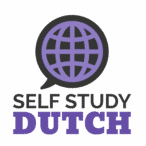Brought my daughter to school today. We were the first ones to go to the yard and she was surprised.
I wanted to joke with her and I would in our own language since we are expats. But just before I said anything I thought that it would be a great idea to do it in Dutch. Needless to say, I couldn’t find the words. That is when my pretty handy Deep L translator came to the rescue again.
The joke I wanted to make is “You wanted to come to school so much, so you actually were the first to come“
The feature I love the most about the DeepL app is the speak option. I can talk in English and get a pretty decent translation in Dutch.
Some of you may wonder why is this so important to me early in the morning. Being an expat parent of a small child in a country with a language that is very far from your native language comes with a twist. In my case, the twist was that my 2-year-old learned Dutch and refused to use our own language any more. We had a very different reaction to that. My husband’s reaction was to insist on talking to him only in our language. My reaction was i needed to get fluent in Dutch so my daughter can talk to me about whatever. I think we both are right in a way and the best approach is something in the middle. The current status of our family is that we all understand what she says but reply to her in whichever language we can.
Well, it is weird but that is my reason for trying to joke with her in Dutch. What I got from the translator was
Je wilde zo graag naar school komen, dus je was eigenlijk de eerste die kwam
You cannot learn to be on your own feet in a language if you do not understand how is this sentence formed and why. When I came back home and did my research. Here is it for all of you who like me use every and any opportunity to learn the language on your own.
Grammar disection
The Dutch sentence “Je wilde zo graag naar school komen, dus je was eigenlijk de eerste die kwam” can be broken down into its grammatical components as follows:
- “Je” – This is the subject of the sentence, which means “You.”
- “wilde” – This is the past tense form of the verb “willen,” which means “to want.” So, “wilde” means “wanted.”
- “zo graag” – This is a phrase that means “so much” or “very much.” It is used to emphasize the desire expressed in the sentence.
- “naar school komen” – This is an infinitive phrase that means “to come to school.”
- “dus” – This is a conjunction that means “so” or “therefore.” It is used to connect the two clauses in the sentence. This one is used super extensively. Probably you hear it everywhere.
- “je” – This is the subject again, referring to “you.”
- “was” – This is the past tense form of the verb “zijn,” which means “to be.” So, “was” means “was.”
- “eigenlijk” – This is an adverb that means “actually” or “in fact.”
- “de eerste” – This phrase means “the first.”
- “die” – This is a relative pronoun that refers back to “de eerste,” connecting the clauses in the sentence.
- “kwam” – This is the past tense form of the verb “komen,” which means “to come.” So, “kwam” means “came.”
Putting it all together, the sentence translates to: “You wanted to come to school so much, so you were actually the first one who came.”
